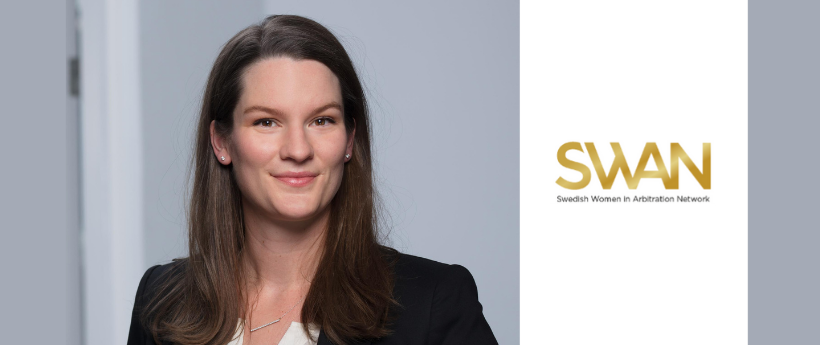“The arbitrator community should reflect its audience”
The SCC, as well as other institutions, play an important role in making sure that the pool of trained arbitrators is diverse, says Lotta Knapp Lönroth, Senior Manager at Vinge and board member of the Swedish Women in Arbitration Network, in this interview.
Published 2022-04-29

Hi Lotta, you are a member of SWAN, Swedish women in arbitration network. Please tell us about the focus and mission of SWAN!
SWAN is a professional network for women with an interest in arbitration. The focus of SWAN is to provide a platform for knowledge sharing and inspiration, with the aim to promote women’s career opportunities in the arbitration industry. SWAN meetups are educational and provide a networking opportunity, such as the upcoming panel debate and summer cocktail hosted at Vinge on 16 June 2022.
Last year, the SCC Board appointed 49% women as arbitrators. Why is gender equality an important issue – what is the value and for whom?
Research shows that diverse companies with both women and men in leadership positions are more profitable than others. A report from the McKinsey Global Institute (2015) found that $12 trillion, or 11 %, could be added to global GDP by 2025 by advancing women’s equality. In my view, diversity in arbitrator panels results in a better product for the end user and adds legitimacy to the arbitrator profession. Further, the arbitrator community should of course reflect its audience – the parties – not only by making the pool of arbitrators more internationally diverse, but also by including both female and male arbitrators.
The SCC, as well as other institutions, who have great insight in individual arbitrator’s experience, play an important role in making sure that the pool of trained arbitrators is diverse. In my view, the law firms play an equally important role by ensuring that there are equal career opportunities for ambitious men and women. I am proud to be part of a law firm that, as the first law firm in Scandinavia, set up a goal to accept 50 % new female partners.
What is in your view, the most important qualities that an arbitrator should possess in 2022?
Besides the obvious of being neutral, knowledgeable, fair and a great project manager, arbitrators today must be somewhat tech savvy due to the change in work methods since the pandemic. In my view, parties will continue to demand remote conferences and – to some extent – hearings.
I also believe that the modern arbitrator must be aware of international trends and developments in the arbitration community as the business world becomes increasingly international – even if the arbitrator only practices domestic arbitration.